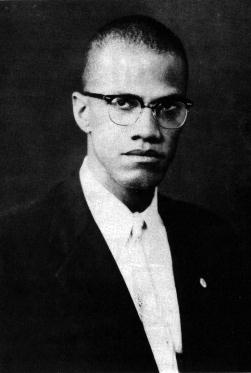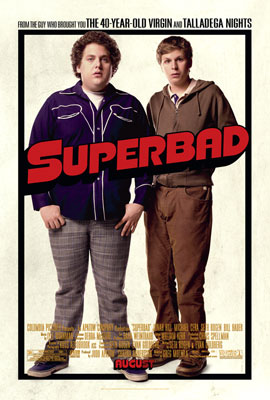Tuesday, June 15, 2004
Te Tiriti
OK then, a few thoughts on this Treaty business. I have read the Treaty before, but not for a few years, so I figured a refresher would be in order. I read the English version and the modern English translation of the Maori version, thereby using up about 5 minutes of my day. I don't know if I'm any wiser, but I thought the Preamble of both versions was pretty interesting, since it talks in pretty unambiguous terms about the Queen's desire to establish sovereignty over New Zealand.
Also, the 3rd Article (in the English translation) contains the interesting clause that
"the Queen of England will protect all the ordinary people of New Zealand and will give them the same rights and duties of citizenship as the people of England."
Now this would seem to preclude NZ becoming an independent (or quasi-independent) state, and establishing laws affecting the "rights and duties of citizenship" that differ in any way from those in England. i.e., it suggests that sovereignty would be permanently vested in the English crown, and thus in the Westminster Parliament. Although perhaps I'm being too formalistic here?
Also, the word "citizenship" is an interesting one, since there was no concept of "English citizenship" in the 19th century. And I doubt there was anything resembling "Maori citizenship" either. The correct term for "the people of England", as used in the English version, was "Subjects." Yes, sycophantic, forelock-tugging, "I'm not worthy" subjects, whose heads may be removed at will be the Divinely-Appointed Sovereign. A quick Google search suggests that British subjects in the UK became citizens on 1 January 1983. Canadians, by contrast, stopped being British subjects and became Canadian citizens on 1 January 1947.
Anyway, back to the issue at hand: Not reading the Treaty doesn't make you ignorant, and reading it doesn't make you wise, precisely because it's open to such widely divergent interpretations. I can read the First Amendment to the U.S. Constitution in about 10 seconds, but it doesn't mean I know anything about how it has been, or should be, interpreted and applied.
To wit, a blow-hard of proportions more legendary than Derek Fox is one Judith Aitken, the former hag-in-charge at the Education Review Office, and winner of the National Business Review's New Zealander of the Year for 1998. Who would have thought that the NBR would listen to someone who consistently bashed public education for the sake of it ... talk about preaching to the converted. In the NBR article, faithfully preserved for The Ages here on the ERO website, she defined a "capable teacher" as one who, inter alia, "pronounced Maori accurately and understood the ramifications of the Treaty of Waitangi."
Well, as for Maori pronunciation, there's not a whole lot of consensus on some issues. Obviously Whangarei is not going to be pronounced "Wongaray", but take the word "Maori" ... I've heard Maori pronounce it from "Maarey" through to "Moorey" and everything in between. On the issue of the Treaty, well Dr Aitken, the whole bloody point is that no one is quite sure what its "ramifications" are or should be. Again, there is a huge spectrum of opinion, ranging from "simple nullity" to "document for Maori separatism". You are a moron ... it's not a teacher's job to engage in detailed historical, sociological, and legal analysis of quasi-constitutional documents. How about "an awareness of the Treaty of Waitangi"? That would about do it.
Alternatively, if we expect teachers to have the knowledge of lawyers and professors, perhaps we should start paying them like lawyers and professors. There's an idea. As it is, poor old Yamis will be soon be earning less per annum than his mechanic, his plumber, his painter, and, of course, his dentist.
Also, the 3rd Article (in the English translation) contains the interesting clause that
"the Queen of England will protect all the ordinary people of New Zealand and will give them the same rights and duties of citizenship as the people of England."
Now this would seem to preclude NZ becoming an independent (or quasi-independent) state, and establishing laws affecting the "rights and duties of citizenship" that differ in any way from those in England. i.e., it suggests that sovereignty would be permanently vested in the English crown, and thus in the Westminster Parliament. Although perhaps I'm being too formalistic here?
Also, the word "citizenship" is an interesting one, since there was no concept of "English citizenship" in the 19th century. And I doubt there was anything resembling "Maori citizenship" either. The correct term for "the people of England", as used in the English version, was "Subjects." Yes, sycophantic, forelock-tugging, "I'm not worthy" subjects, whose heads may be removed at will be the Divinely-Appointed Sovereign. A quick Google search suggests that British subjects in the UK became citizens on 1 January 1983. Canadians, by contrast, stopped being British subjects and became Canadian citizens on 1 January 1947.
Anyway, back to the issue at hand: Not reading the Treaty doesn't make you ignorant, and reading it doesn't make you wise, precisely because it's open to such widely divergent interpretations. I can read the First Amendment to the U.S. Constitution in about 10 seconds, but it doesn't mean I know anything about how it has been, or should be, interpreted and applied.
To wit, a blow-hard of proportions more legendary than Derek Fox is one Judith Aitken, the former hag-in-charge at the Education Review Office, and winner of the National Business Review's New Zealander of the Year for 1998. Who would have thought that the NBR would listen to someone who consistently bashed public education for the sake of it ... talk about preaching to the converted. In the NBR article, faithfully preserved for The Ages here on the ERO website, she defined a "capable teacher" as one who, inter alia, "pronounced Maori accurately and understood the ramifications of the Treaty of Waitangi."
Well, as for Maori pronunciation, there's not a whole lot of consensus on some issues. Obviously Whangarei is not going to be pronounced "Wongaray", but take the word "Maori" ... I've heard Maori pronounce it from "Maarey" through to "Moorey" and everything in between. On the issue of the Treaty, well Dr Aitken, the whole bloody point is that no one is quite sure what its "ramifications" are or should be. Again, there is a huge spectrum of opinion, ranging from "simple nullity" to "document for Maori separatism". You are a moron ... it's not a teacher's job to engage in detailed historical, sociological, and legal analysis of quasi-constitutional documents. How about "an awareness of the Treaty of Waitangi"? That would about do it.
Alternatively, if we expect teachers to have the knowledge of lawyers and professors, perhaps we should start paying them like lawyers and professors. There's an idea. As it is, poor old Yamis will be soon be earning less per annum than his mechanic, his plumber, his painter, and, of course, his dentist.
Comments:
Is it? The primary job of a teacher is not social worker, political activist, or constiutional lawyer, but teacher. A good maths teacher teaches the maths curriculum in an efficient and effective way. A good English teacher does the same for the English curriculum. And so on.
The Treaty has nothing directly to say about these curricula, and its indirect "ramifications" are a mine-field which teachers can't and shouldn't be expected to navigate (at least not in their professional time).
Of course, teachers are citizens, and in this capacity they have the right to research and study the Treaty's ramifications as much or as little as they want. But in their capacity as teachers, they should stick to subjects that their training prepared them for, and which are directly related to the material they teach.
Of course, when the curriculum actually requires teachers to present material on the Treaty as part of a genuine academic course of study (e.g., in History), then they should and must have a sufficient understanding.
The Treaty has nothing directly to say about these curricula, and its indirect "ramifications" are a mine-field which teachers can't and shouldn't be expected to navigate (at least not in their professional time).
Of course, teachers are citizens, and in this capacity they have the right to research and study the Treaty's ramifications as much or as little as they want. But in their capacity as teachers, they should stick to subjects that their training prepared them for, and which are directly related to the material they teach.
Of course, when the curriculum actually requires teachers to present material on the Treaty as part of a genuine academic course of study (e.g., in History), then they should and must have a sufficient understanding.



















Post a Comment